Retinol: what is retinol, does it work, can it improve wrinkles- which are the best retinol serums UK 2022?
This article contains affiliate links. We may earn a small commission on items purchased through this article, but that does not affect our editorial judgement.


Retinol has long been touted as the best product for reducing signs of aging, however due to its irritating effects, many people steer clear of it, believing that other anti-aging products can do more or less the same job.
However, according to Amanda Pook of Skin Technology in Glasgow, retinol is the only product that penetrates the skin’s membrane and has true anti-aging effects.
Why use retinol?
“Our skin is waterproof, so all those other products that claim to be able to get through the skin cannot,” she tells NationalWorld. “The only ingredient that can pass through the skin is retinol.”
beauty-skin-care/how-does-retinol-work#how-it-works">According to Healthline.com, retinol works to go beneath the epidermis - or outer layers- of the skin to the dermis beneath.
In this middle layer of skin, retinol creates a plumping effect and reduces the appearance of fine lines, wrinkles and enlarged pores by neutralising free radicals and boosting collagen production.
It also has an exfoliating effect on the skin’s surface to improve its texture and tone, as well as improving acne and associated scarring. Over time, retinol balances the skin’s moisture levels by preventing the build up of dead skin cells.
Why does retinol leave your skin dry?
The downside is that it can result in dry, flaky and itchy skin, particularly for those with sensitive skin or conditions such as eczema.
However, Pook, who deals with a wide range of skin complaints, from severe acne to pigmentation and premature aging, explains that the reason retinol dries our skin is simply because “it’s an irritant”.
She explains: “It annoys the cells so the body tries to make more skin more quickly.
“When you start to look your age in your 30s and 40s, retinol accelerates cell turnover so that it’s faster than it would be at your chronological age.”
The irritation caused by retinol can be reduced by building up your use of it gradually, explains Pook.
“If it’s too irritating, slow down. As the body becomes more conditioned, you can then go up in percentages as your skin requires it.”
What strength of retinol should you use?
Over-the-counter retinol products tend to come in lower strengths - around 0.2% to 0.3% - while at 1%, retinol is considered an active ingredient for prescription products. However, some of the strongest products available are chirally corrected so that the product is delivered into the skin more quickly and effectively.
The strength of product you should use will depend both on your skin type and how long you’ve been using retinol, according to Pook, who recommends using retinol just twice a week if you’re a beginner, increasing to three times a week as the skin becomes more accustomed, and eventually increasing to every night.
It’s likely that you will experience some dryness and irritation when you first start using retinol, however Pook advises against applying a moisturiser on top of the product. If you have to add some moisture, she recommends waiting at least 10 minutes after applying the retinol to ensure it doesn’t get diluted.
How do you apply retinol?
So how should retinol be applied to get the most out of its anti-aging benefits? Pook recommends applying it once a day after washing your face in the evening. And while it’s fine to put retinol on your neck and around your eyes, she warns you should do this with caution, and less frequently than the rest of your face, as the skin in those areas is thinner.
You should also take care to use a full spectrum sunblock each day since the retinol makes your skin more sensitive to UV rays. “Treat your skin as if it was new born baby skin,” says Pook. “If you’re using retinol products then your new skin cells are performing at the surface all the time which is why your skin looks better - but you have to protect it from further damage.”
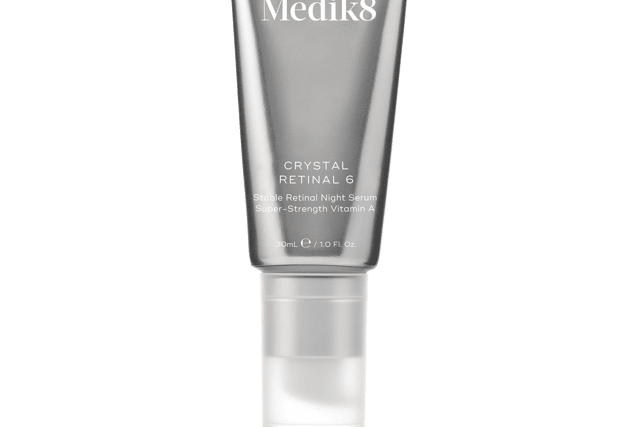

Medik8’s Crystal Retinal range uses a derivative of vitamin A, which converts to retinoic acid more quickly in the skin than regular retinol, and promises to deliver results up to 11 times faster.
The serum minimises fine lines and wrinkles, while plumping the appearance of the skin.
Hyaluronic acid, glycerin and vitamin E help prevent the skin from drying it out, leaving you with a glowy complexion. The product has a lovely texture and a pleasant scent, while the tube is easy to use and pumps a good sized measure of product into your hands.
This product leaves your skin really comfortable, while working hard on signs of aging.
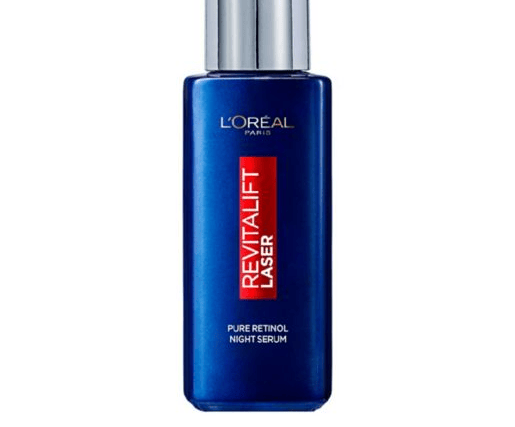

This wallet-friendly product contains 0.2% retinol, L’Oreal’s highest concentration yet. For an over-the-counter retinol, it packs a punch, leaving skin pleasantly tingly.
The product combines a macro Hyaluronic Acid, which helps moisturise skin and prevent excess drying.
It has a slightly sticky texture, and is scented (in case that’s not your preference), but the product did leave skin glowing and over time promises to reduce the appearance of deep wrinkles.
For £24.99 it’s a bargain - and a good choice for those starting out on retinol products.
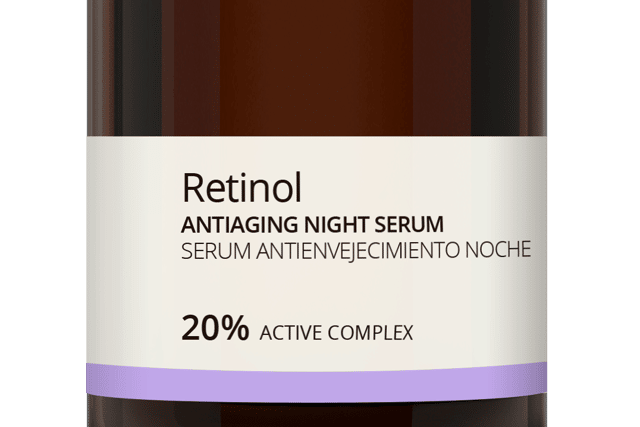

Combining five anti-aging properties, including molecular retinol and Soy Isoflavones, this product promises to promote collagen production, while protecting the complexion.
Hyaluronic acid, elastin, vitamin C and Hawaiian algae keep the skin moisturised and protected while the anti-aging properties work to reduce fine lines and wrinkles.
At £32.95 it’s an effective over-the-counter product for those starting out on retinol.
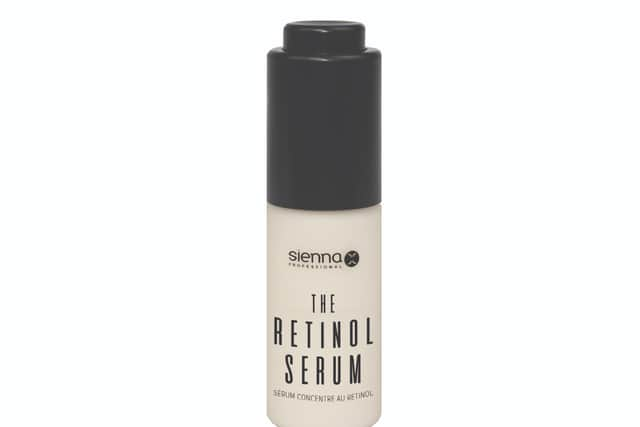

Sienna’s serum contains 0.3% retinol, which works to slough away dead cells, reduce lines and wrinkles and improve radiance and luminosity.
With Kakadu Plum, which is packed full of Vitamin C, it helps brighten the complexion, reduce brown spots and protect against pollution. The texture and scent are pleasant too.
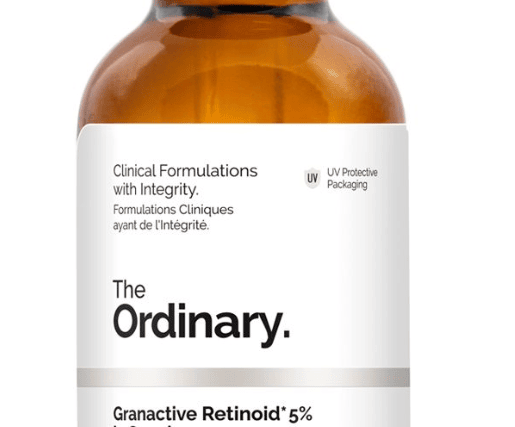

This budget retinol contains a 5% concentration of Granactive Retinoid - an advanced retinoid active complex, which promises to offer better results against signs of aging than retinol, without the irritation.
The consistency is smooth and pleasant to use, and it leaves skin feeling moisturised.
At just £11.90, this is a good option for someone looking to try out a retinoid product without the investment.
The Ordinary’s portfolio of retinoids is also available at a 2% concentration if you’re looking for lower irritation.
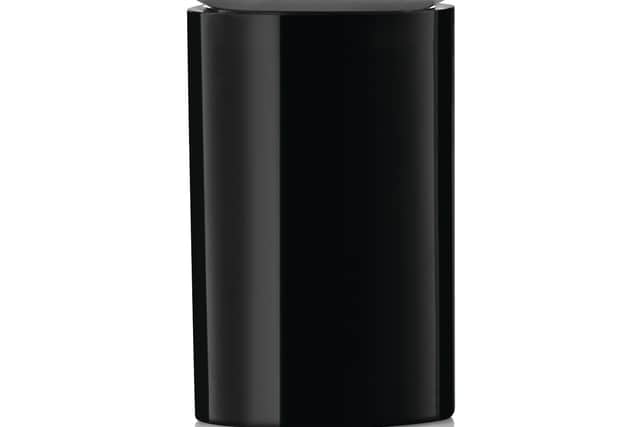

Formulated specifically for people with acne with its 2% salicylic acid, this night-time treatment is also effective on signs of aging.
It contains retinopeptide and plant stem cell extract technology, as well as a delivery system - that’s often used in pharmaceuticals rather than skincare - to carry the ingredients deeper into the skin.
The pleasant, unscented formula comes in an unfussy, squeezy tube, making it simple to apply.
This product left skin clear, with lines visibly smoother.
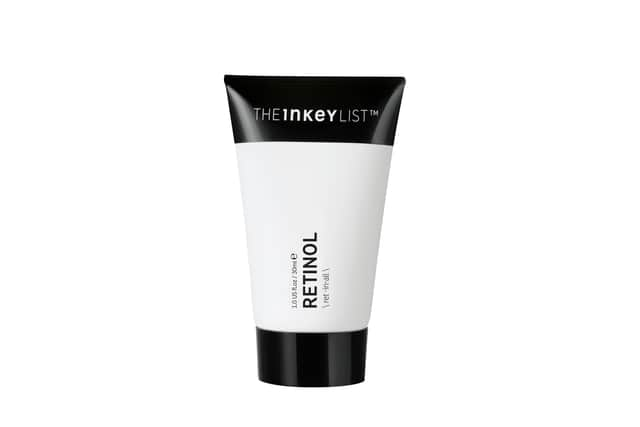

Another budget-friendly option, the Inkey List Retinol contains Granactive Retinoid, as well as 1% RetiStar stabilised retinol, and squalane to soothe and hydrate the skin.
The unscented serum glides easily over the skin, targeting signs of aging and promising to reduce the appearance of fine lines with nightly usage, while protecting against irritation.
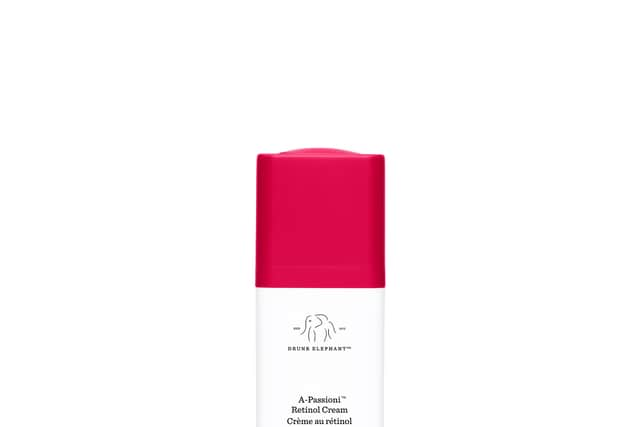

This beautifully packaged product combines 1.0% retinol with superfood-rich ingredients to diminish the appearance of fine lines and damage caused by free radicals.
The retinol works to restore the skin’s bounce and repair uneven texture. It’s comfortable to use, with a blend of passionfruit, apricot and jojoba oils helping replenish moisture and lipids.
It’s even more effective if used in conjunction with TLC Framboos Glycolic Night Serum to slough away dead skin cells and prep skin for the retinol.


This potent formula contains 8% of Cosmedix’s proprietary Retinol AGP complex to help reduce signs of premature aging and improve skin texture and tone, and it’s only available by prescription.
The technology allows skin to absorb the product more effectively, while amino acids and moisturisers help stimulate collagen production. After several weeks’ use, my skin’s texture is noticeably improved with more refined pores and less excess oil. Fine lines are also smoothed.
Medico Skincare experts recommend using Refine Plus alongside Cosmedix Purity Clean cleanser, which contains L-lactic acid to enhance the conversion of Retinol to its active form called Al trans-retinoic acid.
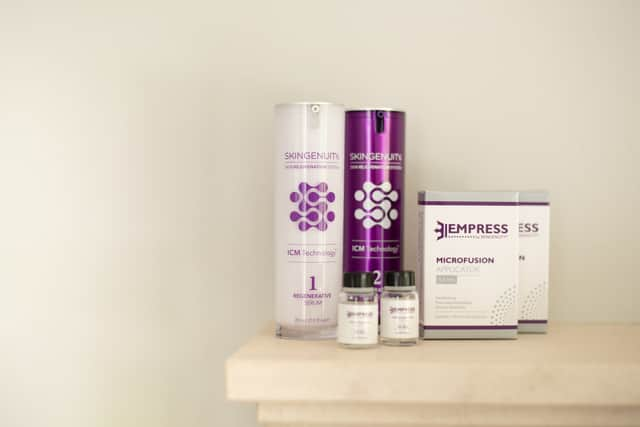

Combining two serums and a home-needling pack, SkinGenuity’s Facial Rejuvenation kit claims to be at the cutting edge of anti-aging skincare technology.
It works using inter-cell messengers, which stimulate the skin cells to repair themselves. The reparative serum helps repair sun damaged skin, while the regenerative serum uses focused growth factors and 0.5% retinol to improve signs of aging, including deep wrinkles.
The products come alongside an in-home microneedling kit, which enhances the effects of the serums. The serums left my skin feeling glowy and youthful, while the microneedling caused dryness and peeling initially - which it’s supposed to do - before revealing a new layer of more radiant skin.
